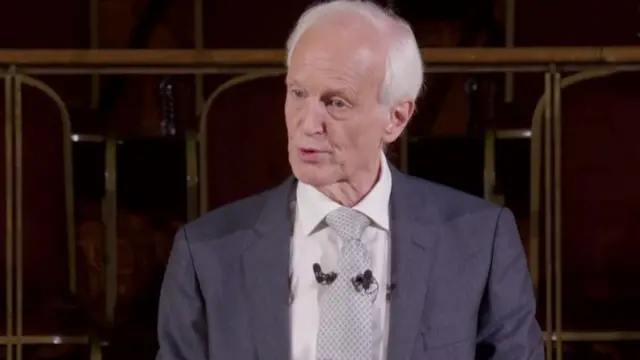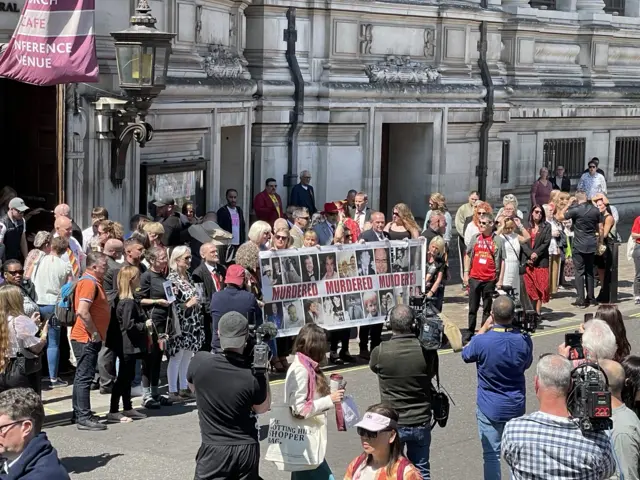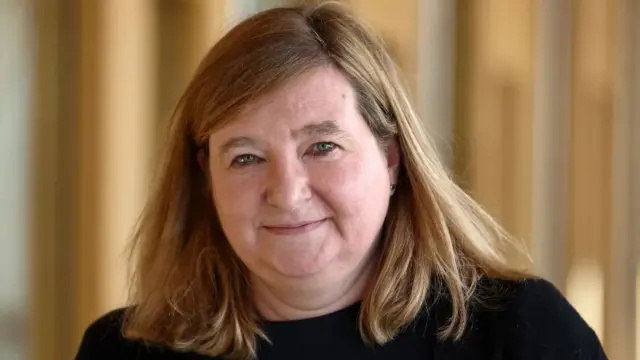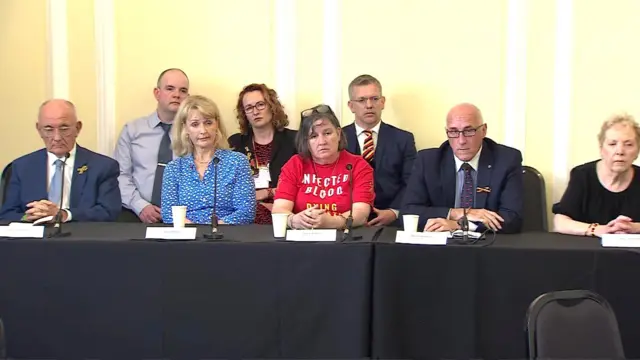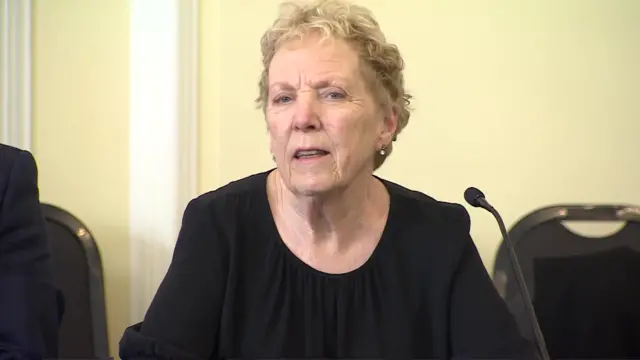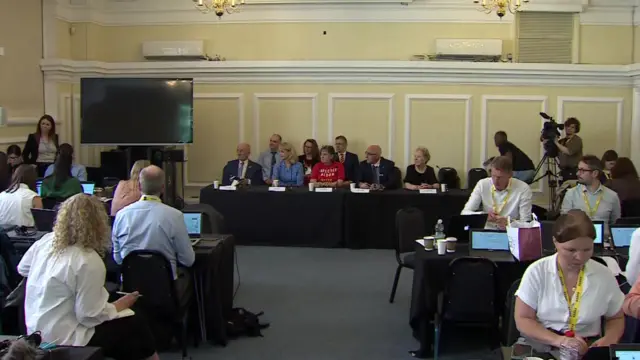Findings make me feel 'numb', says grieving motherpublished at 15:36 BST 20 May 2024
Fiona Lamdin & Chris Locker
BBC News, West of England
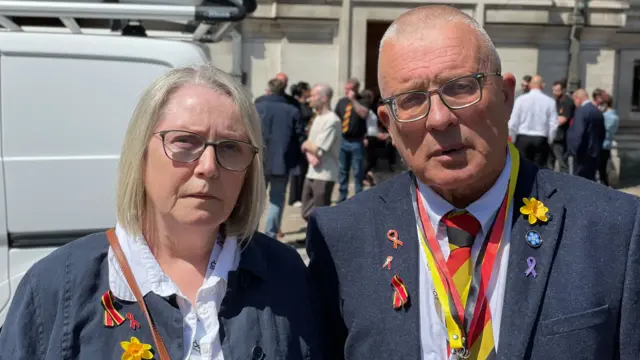
A grieving mother says the long-awaited blood inquiry report has made her feel "numb".
Lee Turton, the son of Denise and Colin Turton from Nailsea, Somerset, died in 1992 when he was 10 after being infected with HIV at the age of two.
His mum, Denise, tells the BBC: "They took his life. He shouldn't have been infected, he shouldn't have been on that treatment, he should be here, and this shouldn't be happening."
She says seeing the report written down did not help, and may have made the situation worse.
Quote MessageIt brings up so many emotions now... it's very much harder than I thought. I feel quite numb at the moment."
